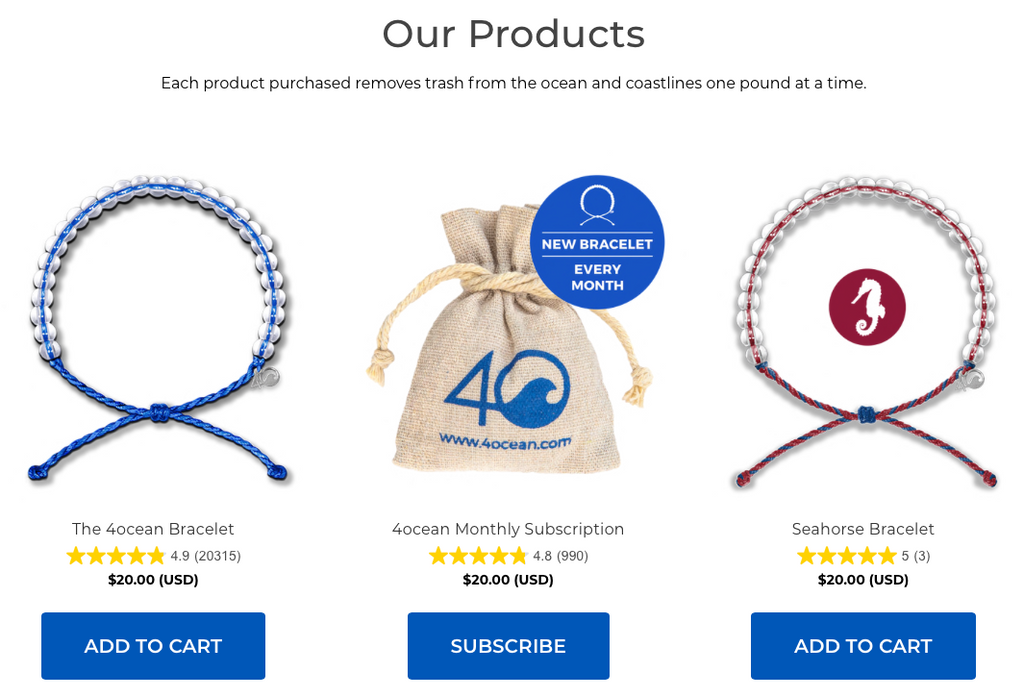The news over the past couple of weeks has been a stark reminder that we are not just dealing with a little bit of plastic in the ocean, we are dealing with an ocean plastic crisis that has far-reaching consequences around the globe. From some of the most remote islands in the Indian Ocean to the deepest depths of the Pacific Ocean, it even has the potential to affect atmospheric oxygen levels which could one day inhibit our ability to breath. Scary stuff.
Hundreds of Millions of Plastic Items Found on Remote Cocos (Keelings) Islands in the Indian Ocean

A pair of coral atolls in the southeast Indian Ocean, many hundreds of miles from the mainland of Australia, are covered in plastic. A recent study of these remote islands found more than 414 million pieces of plastic weighing more than 238 million tons! Some of the most common items found were shoes, more than 977,000 of them, and toothbrushes, of which more than 373,000 were found. What is it about shoes and toothbrushes that cause so many of them to make their way into the ocean? We wonder this as well because these items, especially toothbrushes, are a common find at our Community Cleanups.

While many studies on the topic of ocean plastic pollution focus solely on the surface plastic pollution that is visible, a unique aspect of this study is that it looked at how deep the plastic contamination went. An astounding realization began to emerge that the amount of unseen or buried plastic was 26 times greater than what was just visible on the surface. This is a really significant observation because it goes to show just how much we may be underestimating the extent of the ocean plastic crisis.
Plastic Pollution Found in the Deepest Part of the Ocean: The Mariana Trench
 Photo: Google Maps
Photo: Google Maps
When private equity investor and American explorer Victor Vescovo decided to fund a global submarine expedition to venture to the deepest parts of every ocean on the planet, probably the last thing on his mind was ocean plastic pollution. After all, he was going to places that had never been visited by man, why would there be plastic pollution there? As it turns out, on his record-breaking dive to the deepest part of the ocean, the Mariana Trench in the Pacific, a dusty outline of what appears to be some sort of snack bag came into view at around 35,800 feet (10,912 m). So, in a roundabout way, man had already beaten him there.
 Photo: Discovery/Deep Planet/CBS News
Photo: Discovery/Deep Planet/CBS News
This isn't surprising, however, because it's estimated that more than 16 billion pounds (7.25 billion kg) of plastic makes its way into the ocean every year. And we really don't have a very good handle on where it all goes. With this disturbing discovery, it really hits home that there is no longer place in the natural world that remains untouched by the hands of man.
Critical Oxygen-Producing Microorganisms Affected by Plastic Pollution

One of the most abundant and important bacteria in the ocean is now believed to be adversely affected by ocean plastic pollution. The bacteria Prochlorococcus, pictured above, is capable of photosynthesis and produces approximately 10% of the oxygen we breathe annually. A recent study published in Communications Biology, suggests that two very common forms of ocean plastic pollution, HDPE (high-density polyethylene) which makes up your everyday plastic grocery bag, and PVC (polyvinyl chloride) which is used in many hoses and plumbing, have significant negative effects on these bacteria.
When exposed to chemicals leaching from plastic, these bacteria experienced interference with growth, photosynthesis, and oxygen production. This discovery really does not bode well for the future, but much more research is needed to see if this possible disruption in the natural oxygen cycle will have a lasting effect on humanity.

Every day at 4ocean, we are out cleaning the ocean and coastlines in an effort to help mitigate some of the lasting impacts plastic pollution is having on the ocean, the animals that call it home, and even ourselves. We have pulled almost 4.5 million pounds to date, but it all starts with you. When you purchase a 4ocean Bracelet, you are showing the world that you care about the future of this planet and are taking action to protect it. Pick yours up today.
If stories like this resonate with you, let us know in the comment section below. Make sure to follow us on YouTube, Facebook, Instagram, and Twitter to stay up to date on all things 4ocean! Also, head on over to our Discover 4ocean Facebook Group to get in on the conversation around ocean plastic pollution and other important ocean conservation topics.


 Photo: Google Maps
Photo: Google Maps Photo: Discovery/Deep Planet/CBS News
Photo: Discovery/Deep Planet/CBS News
